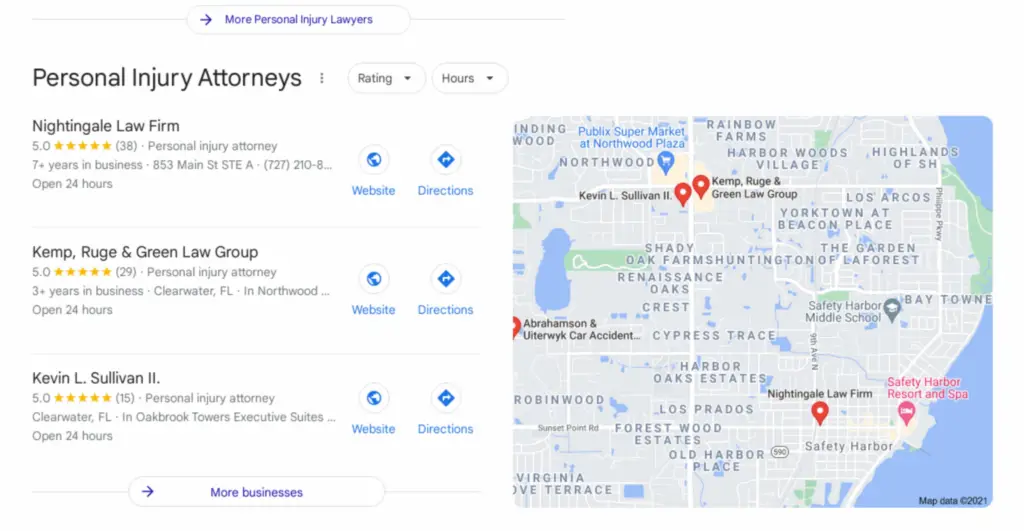Vicinity, Google's new update, increases the weight of the Proximity factor and decreases the impact of keywords in business names in search results with local intent .
Read on to find out more!
What is the new Vicinity update?
Vicinity means the area near or around a specific location. The update was named because Google wants to increase the weight of the proximity factor in local search results.
Google takes into account 3 main factors when ranking a location:
- Relevance: how much the business's characteristics match what the consumer is looking for.
- Online reputation: which is the degree of trust and popularity in the business (number of reviews, rating, interaction, etc.)
- Proximity: the distance of the establishment from the consumer's location.
Although proximity is an important signal for local search results, some establishments still managed to rank in the top results, even when they were very far from the consumer's location .
With the Vicinity update, Google aims to change this, which will naturally make local search results more relevant to the user —in terms of proximity.
Shrinking map size
Mike Blumenthal , co-founder of Local University, shared on Last Week in Local that the new Google Map has had its radius shrunk .
See how the map radius was much larger before and is now more restricted ー covering a much smaller area.
Image before change ( source ):

Image after change ( source )

With this shift in Google's "focus," businesses closer to the consumer's search radius may see their reach increase, as competition from more distant businesses has decreased.
On the other hand, companies that previously ranked for distances very far from their headquarters will see their reach decline.
Impact on keyword usage in company name
A survey by the Sterling Sky revealed that Google has in fact started to devalue the impact of keywords on the company name .
Research data showed that businesses that use keywords (inappropriately) in their name saw a drop in search rankings .
This seems to indicate that Google has started penalizing companies that adopt this practice to improve their ranking in local search results.
Also according to Sterling Sky's research, below are screenshots of a company where one of the keywords describing their service is part of the company's real name.
Pins indicate the location from which the user is searching. The numbers within the pins indicate the company's ranking position.
They used to rank very far from where they are located and that's not the case anymore.

Conclusion
The way Google's algorithm determines local search results, which we discussed at the beginning, hasn't changed. Continue to keep your business information complete and up-to-date.
The most important thing is to be relevant to your consumer and organically build a strong online reputation. Continue requesting new reviews on the platform and responding to all of them.
Google will continue to update its local search algorithm, leaving businesses with no choice but to adapt to the changing landscape. We'll stay tuned for updates!


